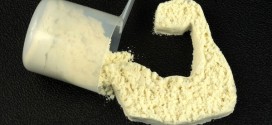Before we make a decision on how much exercise we need, we must have a good idea of exercise goal or goals: What are you exercising for? Physical fitness, weight control, or as to keep your stress levels low?
How Much Exercise You Need ?
“How much exercise is enough for what?,” asks David Bassett, Jr., PhD, a professor in the department of exercise, sport, and leisure studies at the University of Tennessee in Knoxville.
For health benefits, a daily walking may be sufficient for you, says Susan Joy, MD, director of the Women’s Sports Health Program at the Cleveland Clinic.
It depends on whether you want to lose weight, increase endurance, or reach other fitness milestones. Learn about exercise guidelines and the importance of determining your exercise goals.
If your goal is more specific for example, to lower your blood pressure, improve your cardiovascular activity, or simply to lose weight — you will need either more exercise or a higher intensity of exercise. So figure out your goals then determine what type of exercise will help you meet them and how much of that particular exercise you will need to do.Current Exercise Guidelines
According to the U.S. Centers for Disease Control and Prevention, everyone should do two types of physical activity every week: aerobics and muscle strengthening exercise. Aerobic activity involves repetitive use of the large muscles to temporarily increase heart rate and respiration. When repeated regularly, aerobic activity improves cardio respiratory fitness. Running, brisk walking, swimming, and cycling are good aerobic exercises.
Muscle strengthening activities are designed to work on one or more muscle groups. All of the major muscle groups are: legs, hips, back, abdomen, chest, shoulders, and arms, they should be worked on two or more days each week. Lifting weights, working with resistance bands, and doing pushups are all are forms of muscle strengthening exercising.
Adults need at least 150 minutes of moderate-intensity physical activity every week, in addition to muscle strengthening exercises if activity is more vigorous in intensity then 75 min a week may be enough. For even greater health benefits, though, more activity is better: 300 min of moderate intensity exercise or 150 min of vigorous intensity exercise, or a mix of the two.
It is good to be active the whole week, rather than concentrating physical activity in one day. That means 30 to 60 min of exercise, five days a week. You can break it up into smaller chunks: three brief periods of physical activity a day, for example; to be effective in improving health and fitness, you have to be sure to sustain the activity for at least 10 min at a time.
Exercise: What You Need to Lose or Maintain Weight
A right combination of proper diet and an exercise routine is more effective for weight loss than dieting alone. To lose weight, 60 min of moderate to vigorous intensity exercise on most of the days is recommended. Physical activity is also important to maintain weight loss. Moderate intensity exercise for 60 to 90 minutes on most of the days will help maintain weight loss. Of course, a healthful, low cal diet is also very important for both losing and maintaining weight. The amount of exercise you need for weight loss or weight control depends on what you eat, as well as on the type of exercise you choose.
 Fitness Tip of The Day We bring Fitness to You
Fitness Tip of The Day We bring Fitness to You




